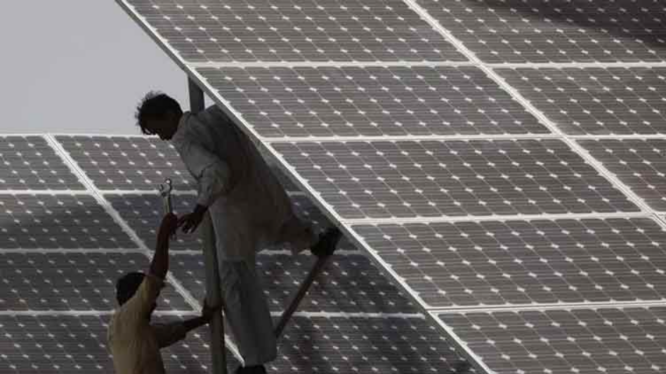
In light of Pakistan’s recent agreement with the United Arab Emirates (UAE) to pass over control of the four berths at its primary port in Karachi, a delegation is scheduled to visit Pakistan in the first week of July in order to sign various agreements.
This is a huge boost for Pakistan, a country facing a severe financial crisis and desperately seeking foreign investment in the face of dwindling foreign reserves, as many experts have predicted for months that the country will soon default, a claim that the government completely rejects.
Minister for Industries and Technologies Sultan Al-Jabar will lead the Emirati delegation, and it is anticipated that the two parties will sign a memorandum of understanding, among other agreements, regarding the development of renewable energy initiatives in Pakistan.

Recent occurrences show that Pakistan-UAE partnerships in several fields are drawing Emirati investment.
AD Ports Group of the United Arab Emirates signed an agreement Thursday to take over the management of a portion of the main Karachi mooring facility for an immediate $220 million, the company announced.
The majority of construction is scheduled for 2026.
The agreement will be a lifeline for Pakistan, whose economy is on the verge of collapse and whose government is frantic for large-scale foreign investment in order to serve its debilitating debt.
AD Ports Group and Kaheel Terminals have founded a joint venture to acquire terminals from Karachi Port Trust (KPT), the government handling agency.
The joint venture will lease four of Karachi Port’s 33 terminals for the next 50 years as part of the UAE agreement. Karachi Port is Pakistan’s oldest and busiest port, with 33 berths.
The JV will make significant infrastructure and superstructure investments over the next decade, according to an AD Group statement.
There are plans to deepen the berths to accommodate larger ships, extend the quay wall, and expand the container storage area.
The terminal will be able to accommodate ships transporting up to 8,500 containers, and its annual capacity will increase from 750,000 to one million containers, according to the statement.
Wapda signed MoUs with His Royal Highness Sheikh Ahmed Dalmook Al Maktoum’s Private Office on Friday. The objective of the first is to establish a framework for cooperation and collaboration in order to investigate investment opportunities for minor hydroelectric power stations, such as 1MW Renala, 22MW Rasul, 13.2MW Chichokimalian, and 13.8MW Nandipur.
The second MoU pertains to the exploration of investment opportunities for the development of a floating solar power project on the water reservoirs and water bodies of Wapda’s extant hydroelectric power stations.
The UAE is a significant contributor to Pakistan’s economy through grants, loans, and direct investment, and has previously bailed out a government that was on the verge of defaulting on its debt for months.
